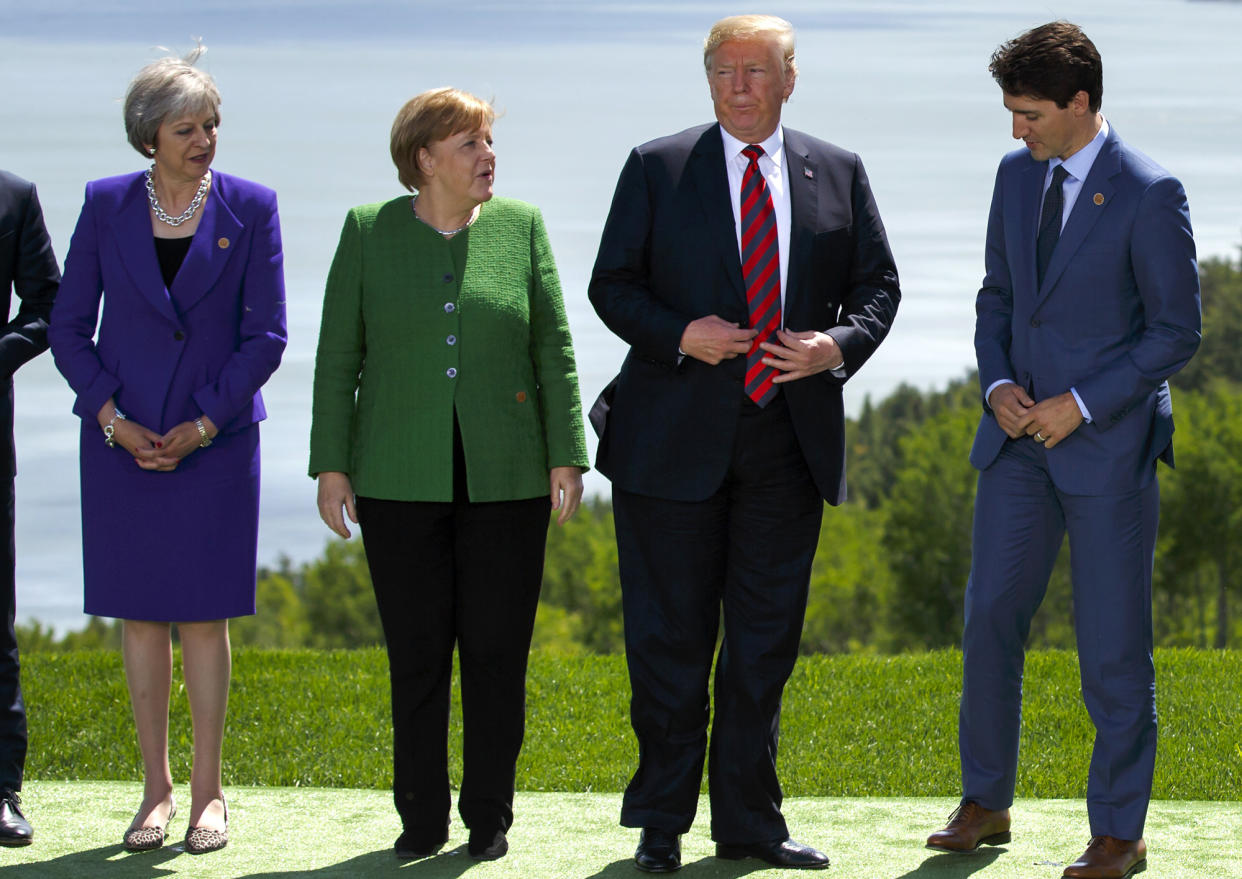President Trump Sidestepped This Problem Entirely at the G7 Summit: Plastic Pollution

President Donald Trump’s Twitter spat over trade wasn’t the only disagreement at the 2018 G7 summit in Canada this weekend. Another unlikely issue has emerged: plastic pollution.
Plastic pollution in the world’s oceans was one of the target goals written into the summit’s oceans charter, according to The Washington Post. And at the end of the meeting, participants agreed to one point in their joint communiqué that they would limit the use of disposable plastics and move toward greater adoption of recyclable plastics.
While it wasn’t expected that Trump, who withdrew the U.S. from the Paris climate accord last year, would agree to help combat climate change, some hoped he could be persuaded to reduce the amount of plastic waste in the world’s oceans. That did not happen.
While the U.S. is not the most significant polluter when it comes to marine plastics—China carries that distinction, according to a 2015 study—the United States produces more waste than other nations. Preventing plastic waste from escaping refuse collection and recycling streams is one of the key ways the U.S. avoids more greatly contributing to the staggering amounts of ocean plastic. A 2015 study estimated that eight million metric tons of plastic end up in the ocean annually, according to National Geographic.
The European Union recently went so far as to propose an outright ban on single-use straws in an effort to curb the crisis.
As plastic pollution has become better publicized in recent years, a number of major retailers and firms have agreed to phase out the use of plastic bags and straws. Last week, Ikea said it would eliminate single-use drinking straws and shopping bags by 2020 followed by SeaWorld and Royal Caribbean saying that they would phase out specific plastic products from their properties, The Washington Post reported today.

